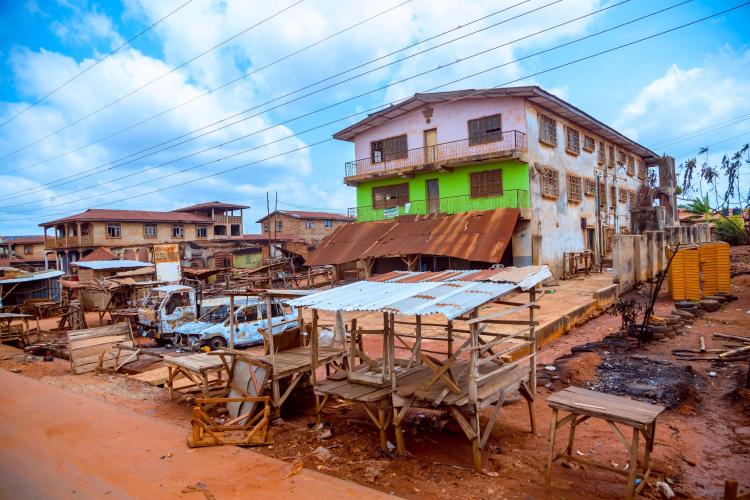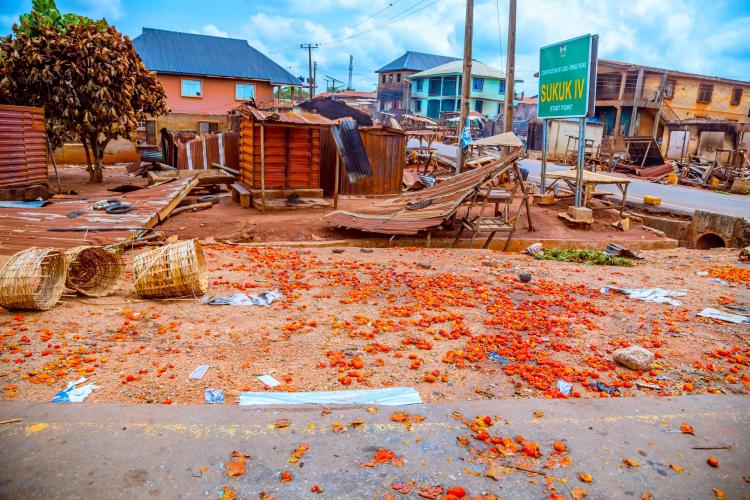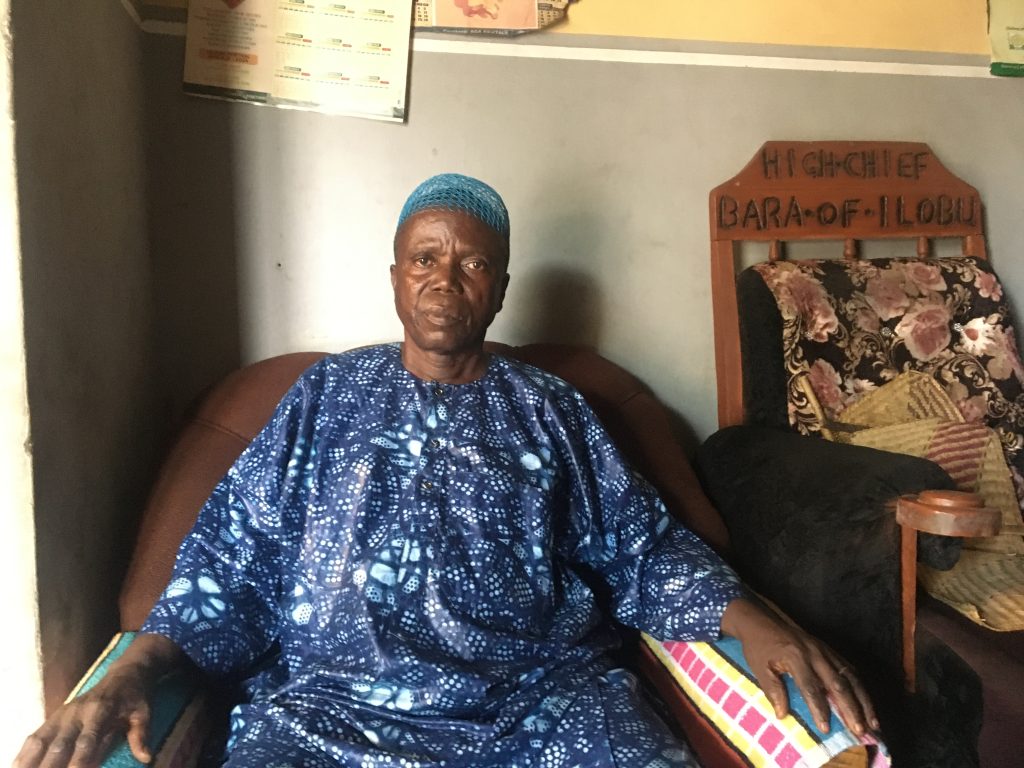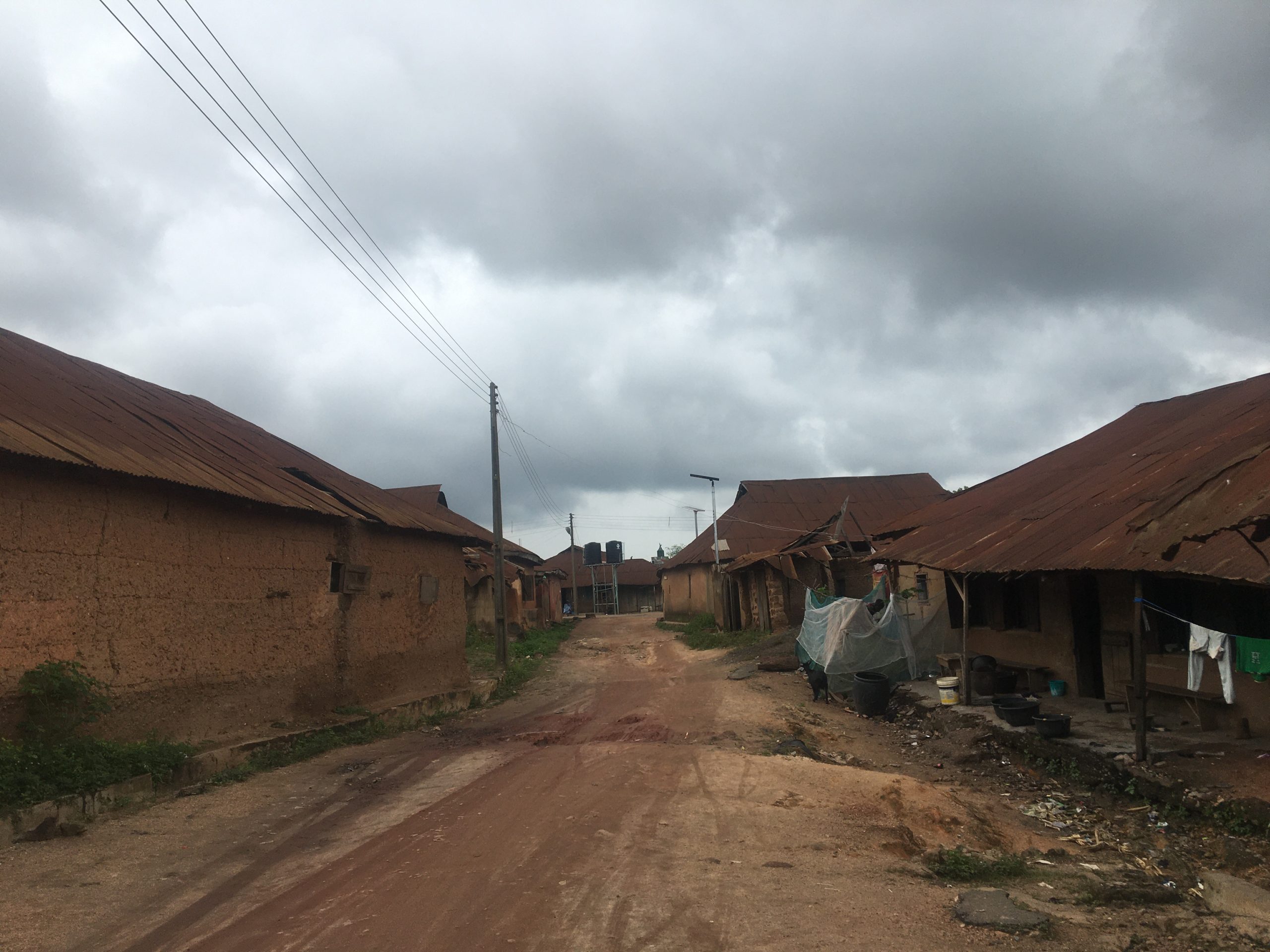The day the last crisis erupted between the Ifon and Ilobu communities remains vivid in the memory of Mrs. Olawunmi. Without hesitation, she recalls: “The crisis broke out on March 20, and we travelled on March 22.” She and her family were forced to relocate from Ilobu to Ogbomoso. Mrs. Olawunmi described their escape as an act of divine intervention. “We left for Osogbo first, and afterwards proceeded to Ogbomoso,” she recounted. According to her, other residents also fled in a similar manner, often taking longer, indirect routes to reach safety.
She explained that she and her family left town at about 10:00 a.m. on March 22. Later that day, the state government announced a 24-hour curfew. Mrs. Olawunmi spent more than a month in Ogbomoso. Before their departure, she said, the sound of gunfire could be heard in Ilobu. “I returned on May 18,” she added.
Background
In March 2025, renewed violence broke out between the communities of Ifon in Orolu Local Government Area and Ilobu in Irepodun Local Government Area. The conflict resulted in the destruction of numerous houses and shops, several people sustaining injuries, and the displacement of many families. The Osun State Government eventually imposed a curfew in the affected communities. Erin-Osun, another nearby community, was also drawn into the crisis. The dispute was reportedly triggered by a long-standing land disagreement. Ifon and Ilobu have a history of violent clashes.
In 2023, violence erupted between the two communities, claiming lives and destroying properties. That incident was regarded as the first large-scale outbreak of deadly violence between them, marked by extensive property damage and loss of life. Before the events of 2025, the 2023 crisis had already resulted in the deaths of residents, the destruction of buildings, and the wreckage of vehicles. Since 2023, the two communities have experienced recurring episodes of unrest.

Till now, Everyone is Still in Doubt
Mrs. Olawunmi said there is still no guarantee that a similar crisis will not occur again. “Everyone is still doubtful,” she remarked. She recalled that a major outbreak of violence occurred in 2023, followed by minor clashes in 2024, before the latest incident in March 2025. Despite her concerns, she returned to the community because, in her words, “there is really no place like home.”
Upon her return, she initially observed that the town appeared deserted, but residents who had remained informed her that the population had grown since the height of the crisis. She added that her children’s education was severely disrupted; during the period her family was away, they could not attend school—a situation faced by many other students in the community.
Amos, a candidate for the 2025 Unified Tertiary Matriculation Examination (UTME), also shared his experience. He had been attending UTME preparatory classes before the March crisis but was forced to stop. “I could not attend tutorials anymore. Even when I was leaving the town, I did not take any clothes with me,” he said. While in Osogbo, he resorted to washing and re-wearing the few clothes he had. “I did not have an Android phone then, so I could not even join the online tutorials,” he added.

Mr. Munirudeen, a resident of the Ifon community, said that some residents have begun returning to the town. However, according to him, those whose houses were destroyed in the violence have been unable to return due to a lack of resources to rebuild. He remained in Ifon throughout the crisis and noted that “everybody in the three communities — Ifon, Ilobu, and Erin — felt the impact of the curfew.” He explained that economic activities were brought to a standstill during that period.
On the question of whether tensions still exist, Mr. Munirudeen believes it depends largely on the mindset and intentions of individuals. “We cannot really know if the people of Ilobu or the people of Ifon have decided to let go of the matter,” he said. He concluded by entrusting the situation to God, expressing his hope and prayer that such violence will never occur again.
Another Ifon resident, who conducts much of his business in Ilobu but chose to remain anonymous, recounted his own experience of the crisis. He said that in October 2023, he hired someone to clear the bush on his farm, but the worker declined, explaining that a relative had gone missing. While heading to the location with the worker, they were warned not to proceed because a corpse had been found there. The body was later confirmed to be the missing relative, who had been shot. The site where the body was discovered lies within the disputed land between Ifon and Ilobu.
He recalled that the violence “started with the throwing of stones, then advanced to bullets. That was how they started killing themselves.” He noted that the 2023 crisis was eventually quelled through government intervention. He further explained that in 2024, a rumour circulated that the late Major General Taoreed Lagbaja, an indigene of Ilobu, intended to use the disputed land for a construction project. “Upon hearing this, the people of Ifon began protesting,” he said.
I Left My House to Rent an Apartment – Ifon Resident
The anonymous Ifon resident further explained that he relocated from his home to a rented apartment in the Agunbelewo area, outside the two warring communities. He said the decision was partly influenced by the fact that his wife already had a residence outside the communities and his children’s school was also located there.
He noted that the government eventually deployed security personnel to the area. According to him, it is widely believed among residents that the continued presence of military and security officials is the main reason another outbreak of violence has not occurred.
Speaking on the broader consequences, the resident said the crisis had caused significant setbacks. “Some schools located at the boundaries, such as Golden Gate, can no longer operate. Many businesses have also left the communities,” he said. He recounted how a man who sold foam products lost his shop to arson and was forced to restart his business outside Ilobu.
The resident revealed that he has not returned to his home and has no immediate plans to do so. “If I have to go back, I will spend at least a year in my rented apartment first. Before returning, I must be sure there is peace,” he said, adding that he is even considering renewing his rent. He estimated that “more than 500 families have moved out of the communities. People are leaving, and many are still prepared to leave.”
Mrs. Bolanle Oyinlola, another resident of Ifon, said she was not in the community during the crisis but followed events through television news. “People who have houses in the community but are not courageous enough leave for places like Ilorin, Ibadan, and Ogbomoso,” she explained. Mrs. Oyinlola alleged that residents of Ilobu were responsible for much of the destruction. “Ifon is not a problematic community. Ilobu is always the one to start,” she claimed. She added that she believes the conflict is now over because the governor has warned the traditional rulers of the three communities — Ifon, Ilobu, and Erin — that they will face consequences if further violence occurs.
We Need to Forget About The Past and Embrace Peace – High Chief Bara of Ilobu
In an interview with the High Chief Bara of Ilobu, High Chief Alhaji Asiru Jimoh Alade, he recounted the events leading to the outbreak of the conflict. He explained that tensions began during the mourning period of the Olobu of Ilobu, whose wife had recently passed away. At that time, the Elerin of Erin, the traditional ruler of Erin, contacted the Olobu to warn him to take note of the community’s boundary. According to the High Chief, the Elerin threatened to initiate a war if the people of Ilobu did not vacate land he claimed belonged to Erin.
High Chief Alade denied any involvement by Ilobu in the most recent attack, which occurred a few months ago. “Ifon and Erin communities met because of Ilobu,” he said. He narrated that on March 19, just eleven days before the end of Ramadan, a woman came to his residence to warn him that people from Ifon were allegedly planning to wage war the following day. At the time, he dismissed the warning. However, the next morning, reports began to spread that several people had been shot and that violence had erupted. He added that Erin later joined the assault.
“The situation was severe — properties were destroyed and people of Ilobu were killed,” he said. The High Chief added that, after the crisis, the same woman who had warned him earlier returned to tell him that her father’s house had been burnt down.

Real peace comes from building trust – Conflict Resolution Expert
In a conversation with Ajibola Bamgbose, a Conflict Resolution Expert, she described the Ifon–Ilobu crisis as “a painful reminder that when old disputes remain unresolved, they can resurface with devastating consequences. Land and boundary issues are rarely about the land alone — they are often deeply connected to people’s history, identity, and emotions, which makes them far more complex than they appear.”
She further explained that post-conflict healing must happen on two levels: rebuilding homes and livelihoods, and repairing relationships between the communities. This, she said, requires creating safe spaces for open dialogue, ensuring that every voice is heard, and addressing grievances in a fair and transparent manner.
Ajibola added that while measures such as curfews can temporarily reduce tensions, lasting peace depends on building trust, honouring past peace agreements, and involving community leaders, young people, and women in the search for solutions. “True peace is not just the absence of fighting — it is the presence of justice, trust, and respect,” she concluded.
Note: The names of some of the interviewees in this report are either changed or they are kept totally anonymous. This is for security reasons.





